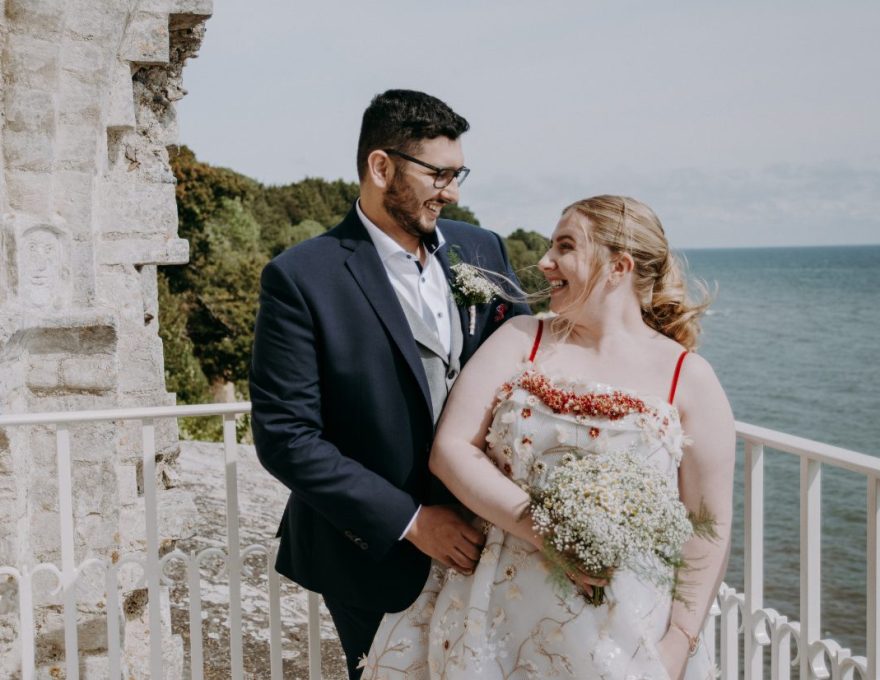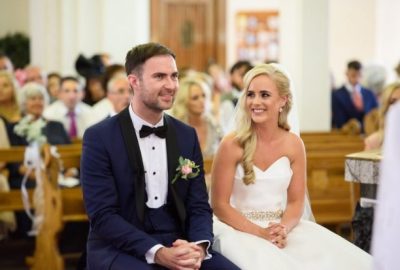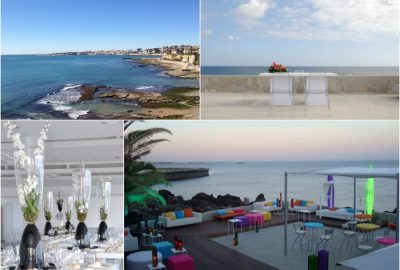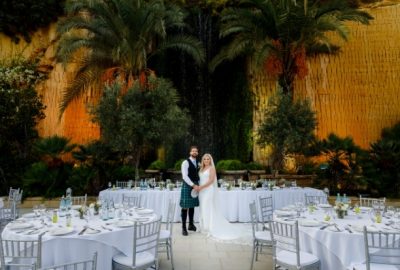Irish couples looking to get married have lots to think about! If you’re tying the knot in Ireland, check out this post for all the legal information of what to do and when. But what do you do if you’re getting married abroad? Each country has its own rules and regulations so it can be very complicated, especially if there’s a language barrier.
Well, if you are getting married in Spain, The Algarve, Italy or Denmark, our fabulous suppliers are demystifying all the details for you!
Featured image credit: Wadham Scholtz, through Nordic Adventure Weddings (Denmark)
Secular Weddings in Spain | The Wedding Man
I am based in Spain. Of the 180 or so weddings I have conducted, quite a few have involved Irish couples (both Irish or Irish+Other nationality). My ceremonies are “symbolic” – not a term I like, as the couples consider it their REAL wedding! This means there is no legal or religious element to the proceedings.
This is the type of wedding I am involved in. 99.9% of couples, from wherever they hail, get married in a civil ceremony in their home country or country of residence BEFORE their destination wedding. A lot of couples even deliberately down-play the civil ceremony as an event in order to heighten the enjoyment of their eventual wedding abroad weeks/months down the line
So, with the many amazing locations that the Mediterranean offers as a backdrop and the possibility of an extended celebration with family and friends in a sunny clime for the same cost as a wedding-back-home… this is a VERY popular option.
Church Weddings in Spain | Your Dream Wedding in Spain
Here on the Costa Blanca, Catholic weddings happen every day and are recognised as legal and there is no issue with residency whatsoever. The Catholic Church here really endorses Catholic weddings and there is no requirement for translation of documents which can be both a headache and an added expense when getting married in other European countries.
The first step is to contact the Parish Priest where the future bride resides. Or in the situation where only one partner is Catholic, the Parish Priest where the Catholic party resides.
The Parish Priest will initiate the documentation. When all necessary documents, such as Baptismal Certificates, Letters of Freedom and photocopies of Passports, have been obtained and the Pre-nuptial information completed, the Parish Priest will send the dossier to his Diocesan Curia in Ireland. The Curia will authenticate the documents and forward them to the Curia of the diocese in Spain where the marriage is to take place. The latter Curia will then issue permission to Parish Priest of the Church where the marriage is to take place.
Certificate of No Impediment is a document, required in some countries, which states that there is no known impediment to your proposed marriage. The certificate is obtained from the department of foreign affairs in Ireland. As many couples move around so much these days it isn’t always possible to get Letters of Freedom from your church where you lived. Please talk with your priest as they might accept your certs as proof of your single status
The Parish Priest may delegate another priest (English-speaking priest) to perform the marriage ceremony. After the marriage has taken place the Parish Priest will issue the necessary documents for the Civil Registration at the local Town Hall where in turn they will issue you with your marriage certificate.
How to apply for certificate of freedom to marry.
The Algarve, Portugal | Sonho A Dois
The legal requirements are pretty much the same as in Ireland; couples do need to provide paperwork in order to get their license for the legal marriage. Basically, birth certificates and certificates of no impediment. Paperwork must be submitted in advance of the wedding (up to a minimum of 3 to 4 working days).
Catholic weddings follow the same procedure throughout the world, so the requirements are the same as in Ireland. The only thing that changes is the address of the church. We are able to get English-speaking Priests to conduct the ceremony.
For symbolic ceremonies, couples do have total freedom to create their own ceremony.
Italy | Belmare Weddings
Civil weddings can be celebrated in various municipalities of the Sorrento Peninsula and the Amalfi Coast in beautiful locations of great historical and landscape interest, to whom the mayors have given the mandate of “municipal house”. Irish spouses who wish to marry civilly in Italy must make an explicit request to the municipality of their interest (wedding planners take care of this), and produce the necessary documentation to be sent to the Irish embassy in Italy for legalization.
Once the documents have been legalized, the embassy will send them to the wedding planner or directly to the Italian municipality that will celebrate the wedding.
Spouses who want a religious wedding can choose 2 options:
- Get married civilly at home and organize a religious blessing in Italy, or
- Solemnize a religious ceremony that also has legal value.
In both cases, they will have to produce certificates of baptism, confirmation, and premarital course, and, if the marriage must also have civil value, they will have to follow in addition, the same procedure required for civil marriages.
Symbolic weddings, also known as secular weddings, free the spouses from any bond: they do not require any document, they can be celebrated anywhere (except in church) and by anyone.
Denmark | Nordic Adventure Weddings
Having a wedding in Denmark is easy. Danish marriage laws, the bureaucracy, documentation and processes involved are simpler than any other European country. You can get married already in 2-3 weeks after applying!
Ceremonies can be conducted in English and you are given your marriage certificate right in your hands so there’s no waiting around. Danish marriage certificates are recognized in Ireland without any legalization. And this also applies to foreigners residing in Ireland. This minimal no fuss approach to paperwork ensures that you can get on with enjoying your wedding day without being bogged down with administration and formalities. And when you book your wedding adventure through us, we take care of all the boring paperwork for you.
Having a wedding in Denmark is inexpensive. If you want to get married easily abroad budget definitely plays a part. We plan beautiful Danish Island weddings through an array of wedding packages with prices ranging from €700. Turning your dream of getting married in Denmark into a very affordable reality. Denmark is just a two-hour flight from Ireland. With five flights a day from Dublin to Copenhagen, as well as to several other destinations across the Danish Islands, you can pick up some really cheap deals. We’ve seen flights go for as little as €18.00 per person.
Having a wedding in Denmark is an adventure. An elopement or small wedding abroad turns your wedding from a day to a familiar location close to home to an adventure somewhere new for several days. It combines a wedding and a honeymoon that you can either escape to by yourselves or bring your loved ones along with you.



